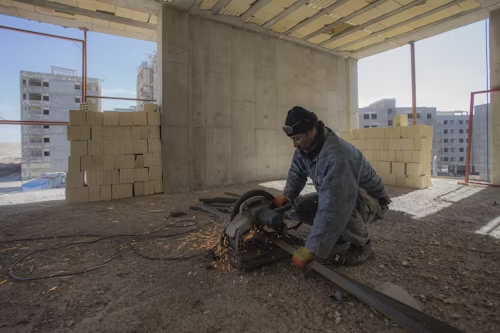
More than a dozen Colorado cities are at risk of losing out on millions of dollars in state funding after failing to comply with new state housing laws designed to encourage denser residential development.

The warning follows a May 16 executive order from Governor Jared Polis, directing state agencies to withhold certain grants and loans from local governments that haven’t implemented recently passed housing mandates. These mandates are part of the state’s larger effort to address its growing housing shortage and affordability crisis.
The potential funding cuts include $280 million across 34 different programs, covering areas such as housing development, transportation, infrastructure, land use, historic preservation, energy, and climate initiatives.
According to the Colorado Department of Local Affairs (DOLA), most municipalities, including Denver and Colorado Springs, are compliant. However, several others have failed to align their zoning codes with state housing directives.
Cities that have not implemented a law requiring denser housing near transit include Arvada, Aurora, Centennial, Cherry Hills Village, Glendale, Greenwood Village, Lafayette, Lone Tree, Thornton, and Westminster.
Additionally, the law mandating that homeowners be allowed to construct Accessory Dwelling Units (ADUs)—small, independent housing units on residential properties—is not being followed by Arvada, Aurora, Castle Pines, Centennial, Cherry Hills Village, Glendale, Greenwood Village, Lone Tree, Thornton, Firestone, Palmer Lake, and Parker.
Polis set October 6 as the deadline for localities to come into compliance or risk losing eligibility for key grant programs.
“This is Colorado taxpayer money. We want to make sure that it's going to areas that are fundamentally pro-housing and are not kind of just rowing upstream and getting less housing,” said Gov. Polis in an earlier interview. He emphasized that these laws are designed to expand housing supply and diversity, aiming to lower costs and improve access across the state.
Maria De Cambra, executive director of DOLA, told CPR News that noncompliant communities can still apply for funding—but their applications will be at a disadvantage.
“That is a factor in our scoring,” said De Cambra. “At the same time, you know, our grants are very competitive.”
She added that the state remains open to collaboration. “Anyone that wants to work with us to come to compliance, we look forward to continue working with them.”
De Cambra also noted the high number of cities voluntarily meeting the state’s requirements, adding, “I think what the data is showing is how committed our local governments are to continue to provide housing options that are more affordable.”

The governor’s approach has sparked legal pushback. Six “home rule” cities have filed a lawsuit claiming the state is overstepping its authority by penalizing local governments through funding restrictions.
The suit argues that the executive order violates the Colorado Constitution by infringing on the legislative and judicial branches’ powers, and by limiting local control over land use.
“I honestly never thought I would see the day that all the great work DOLA does helping all local governments would be overshadowed by referring to partners as ‘subject jurisdictions’ and weaponizing the department against home rule authority and local decision-making,” said Kevin Bommer, executive director of the Colorado Municipal League.
Colorado’s housing market remains one of the most expensive in the country, driven by population growth and limited housing stock. The Polis administration’s recent housing laws, including those supporting transit-oriented development and ADUs, are meant to spur the construction of more affordable housing in urban and suburban areas.
Most laws apply to denser Front Range communities, while rural and mountain towns are largely exempt. The state estimates that the new policies could unlock thousands of new homes if properly implemented.
However, enforcement remains challenging. Many laws lack direct reporting mechanisms, and DOLA currently assumes compliance unless evidence proves otherwise.
For now, Polis and state housing officials are urging cooperation rather than punishment—but the message is clear: Colorado’s future housing funds will increasingly favor communities that actively support smart growth and affordable housing development.
Originally reported by Bente Birkeland in CPR News.